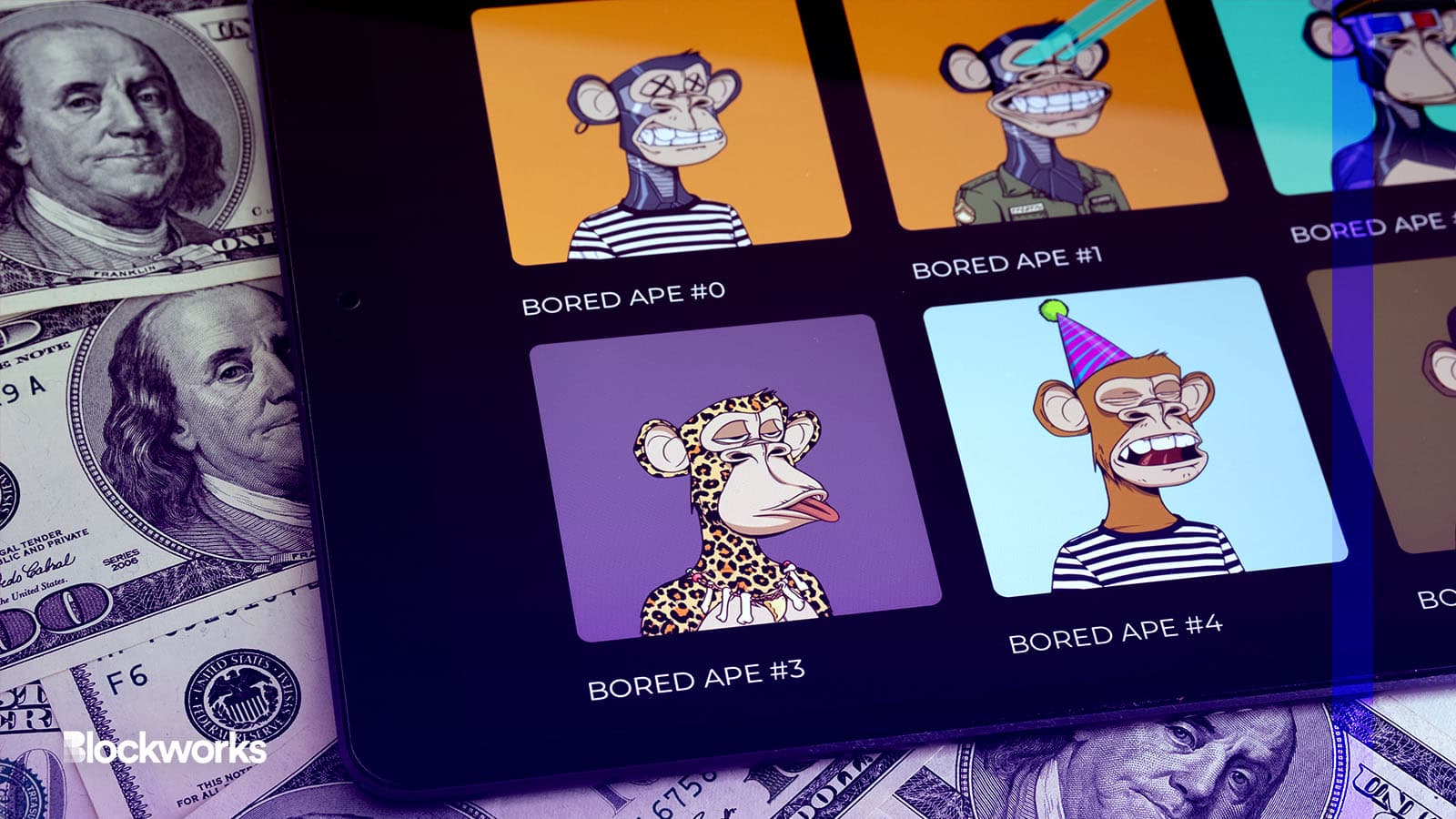BAYC Creator Yuga Labs Scores Legal Victory in Ryder Ripps Lawsuit
Bored Ape Yacht Club creator Yuga vindicated case against NFT copycats Ryder Ripps and Jeremy Cahen

Source: Shutterstock / mundissima, modified by Blockworks
A US judge ruled in favor of Bored Ape Yacht Club’s creator Yuga Labs in a case involving Ryder Ripps and Jeremy Cahen over their satirical NFT collection.
The court’s summary judgement granted Yuga injunctive relief and monetary damages in a ruling filed April 21.
In May 2022, Ripps and Cahen created the Ryder Ripps Bored Ape Yacht Club collection, a series of NFTs that looked nearly identical to Bored Apes, which Ripps alleged perpetuate Nazi symbolism.
Shortly after, in June, Yuga filed a lawsuit against Ripps and his associate, alleging that they had created and marketed “copycat NFTs” that hurt the value of the authentic ones.
Yuga alleged that Ripps promoted and sold the collection “using the very same trademarks” that BAYC’s real creator uses to sell BAYC NFTs. The NFT company said it was a deliberate effort to harm Yuga by making consumers doubt whether the RR/BAYC NFTs were affiliated with the authentic BAYC.
Ripps attempted to block the lawsuit in August, arguing his NFTs were a form of appropriation art that was meant to be “artistic criticism.”
His arguments included claims that Yuga’s BAYC logo was an imitation of a Nazi symbol and that the company’s artwork was “embedded with dog whistles common among neo-Nazis, alt-right groups, and racist bulletins” on websites like 4chan.
Yuga’s co-founder responded to Ripps’ allegations, calling him and his associates trolls that spread “ridiculous conspiracy theories.”
In December, Ripps and Cahen claimed that NFTs are “unique by design and cannot be copied.”
The US district judge John Walter found that Yuga has established significant brand recognition from using the BAYC marks in commerce, that Ripps infringed on unregistered marks and engaged in cybersquatting. Ripps RR/BAYCS “does not constitute an expressive artistic work protected by the First Amendment,” the judge wrote, and was likely to confuse consumers.
Meanwhile, a motion from Yuga motion regarding statutory damages was denied — though this was more of a technicality, determining that any damages would be decided at trial.
Copyright attorney Jessica Need McDonald concluded on Twitter that the case was a “big win” for Yuga.
The outcome is significant as it validates the importance of maintaining the authenticity and value of NFTs in the crypto industry.
Get the news in your inbox. Explore Blockworks newsletters:
- The Breakdown: Decoding crypto and the markets. Daily.
- 0xResearch: Alpha in your inbox. Think like an analyst.






